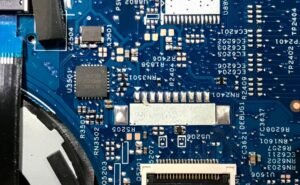Where Is AI Right Now?
Artificial Intelligence (AI) has rapidly evolved in recent years and is now being implemented in various fields, revolutionizing the way we live and work. From self-driving cars to virtual assistants, AI is changing the world as we know it. In this article, we will explore the current state of AI and its potential impact on society.
Key Takeaways
- AI is advancing at a rapid pace and is being implemented in various industries.
- Machine learning is an important subset of AI that allows systems to learn from data and improve over time.
- AI has the potential to greatly enhance productivity, efficiency, and decision-making processes.
- There are ethical concerns and challenges that need to be addressed to ensure AI is used responsibly.
- AI has both positive and negative implications, and its impact on jobs and the economy remains a topic of debate.
The Current State of AI
The field of AI is experiencing remarkable advancements, with breakthroughs happening across various domains. Machine learning, a subset of AI that enables computers to learn from data, has played a significant role in recent progress. Machine learning algorithms are evolving to better understand and interpret complex patterns, enabling AI systems to perform increasingly complex tasks.
Deep learning, a type of machine learning, has demonstrated remarkable success in areas such as computer vision and natural language processing.
AI is now being used in various industries, including healthcare, finance, manufacturing, and transportation. For example, in the healthcare sector, AI is being utilized to assist in diagnosis, drug discovery, and personalized medicine. In finance, AI algorithms analyze large volumes of data to detect patterns and make predictions, aiding in investment decision-making. Self-driving cars, an application of AI, are being tested extensively and are making tremendous progress towards becoming reality.
The Future Possibilities
The future potential of AI is vast and holds immense possibilities for improving various aspects of human life. AI has the ability to automate repetitive tasks, leading to increased productivity and efficiency. It can enhance decision-making processes by analyzing large datasets and providing valuable insights. AI-powered virtual assistants, such as Siri and Alexa, have become commonplace, making our lives more convenient and assisting us in daily tasks.
Advances in AI could potentially lead to breakthroughs in fields like healthcare, where AI systems could aid in early disease detection and personalized treatment.
However, there are ethical implications that need to be carefully considered. AI raises concerns about privacy, security, and potential biases in algorithmic decision-making. It is crucial to develop and implement AI systems that are transparent, accountable, and unbiased to ensure their responsible use.
Furthermore, the impact of AI on jobs and the economy remains a topic of debate. While AI has the potential to automate certain jobs, it also creates new opportunities and demands for human skills. It is important to find a balance between human-led tasks and AI-driven automation to ensure inclusive economic growth.
Data on AI Growth
| Year | Global AI Market Size (USD billion) |
|---|---|
| 2016 | 1.62 |
| 2017 | 3.18 |
| 2018 | 4.82 |
Examples of AI Applications
- Virtual assistants like Siri and Alexa.
- Online recommendation systems used by streaming platforms or e-commerce websites.
- Fraud detection algorithms in the banking sector.
Impact of AI on Jobs
The impact of AI on jobs is a topic of debate and varies across different industries and job roles. While AI has the potential to automate certain tasks and jobs, it also creates new opportunities. Some jobs may be replaced by AI, while others may require new skills that complement AI technology. It is important to adapt to the changing job market and acquire skills that are in high demand in the AI-driven economy.
Conclusion
AI has made significant strides in recent years and is being implemented across various industries. Machine learning and deep learning technologies have pushed the boundaries of what AI systems can achieve. The future possibilities of AI are immense, but it is crucial to address ethical concerns and find a balance between automation and human-led tasks. As AI continues to evolve, its impact on jobs and the economy will shape the way we work and live in the years to come.

Common Misconceptions
AI is capable of human-like intelligence
One common misconception about AI is that it possesses human-like intelligence. While AI technology has made significant advances in recent years, it is still far from replicating human-level intelligence. AI lacks the ability to understand context, emotions, and make nuanced judgments that humans excel at.
- AI can outperform humans in specific tasks such as chess or Go
- AI lacks common sense knowledge that humans take for granted
- AI cannot experience consciousness or self-awareness
AI will replace all human jobs
Another misconception is that AI will render human workers obsolete. While AI has the potential to automate certain tasks and job roles, the notion that it will replace all human jobs is exaggerated. AI is designed to augment human capabilities and improve efficiency, not entirely replace human intelligence and creativity.
- AI can enhance productivity by automating repetitive and mundane tasks
- AI is better suited for tasks that require data analysis and pattern recognition
- AI cannot fully replicate human skills such as empathy, creativity, and complex decision-making
AI is unbiased and objective
Many people have the misconception that AI algorithms are neutral and devoid of biases. However, AI systems are only as unbiased as the data they are trained on. If the training data contains biases or reflects societal inequalities, AI algorithms can inadvertently perpetuate and amplify those biases.
- AI systems can inherit biases from historical data, leading to discriminatory outcomes
- Fairness and ethics in AI require active oversight and careful evaluation of the data used for training
- AI decision-making can reflect the biases of the individuals or organizations that develop the algorithms
AI is a threat to humanity
There is a common misconception that AI poses an existential threat to humanity, leading to a dystopian future. While AI does raise important ethical and societal concerns, the notion of AI turning against humans and dominating the world is largely based on science fiction and exaggeration.
- AI operates within predefined boundaries and lacks consciousness or intentions
- Concerns around AI should focus on ethical use, data privacy, and potential job displacement
- AI development requires rigorous ethical frameworks and responsible governance
AI is always right and infallible
Contrary to popular belief, AI systems are not always right and can make mistakes. AI relies on algorithms, which can have limitations and errors due to various factors such as the quality of the training data, algorithm design, and environmental factors.
- AI systems can produce biased or incorrect outputs if inadequate or biased training data is used
- AI can be vulnerable to adversarial attacks and manipulations
- Human oversight and validation are crucial to ensure AI outputs are accurate and trustworthy

The Current State of AI in Various Industries
Artificial Intelligence (AI) has made significant advancements across various industries, revolutionizing the way we live, work, and interact. This article explores the applications of AI in different fields and highlights the progress made so far.
AI in Healthcare
Artificial Intelligence has transformed healthcare by enabling accurate diagnoses, personalized treatments, and improving patient care. The following table showcases some remarkable achievements in this field.
| Application | AI Advancement |
|---|---|
| Medical Imaging | AI algorithms can identify and analyze patterns in medical images, aiding in early detection of diseases. |
| Precision Medicine | AI helps in analyzing vast amounts of genomic data to develop personalized treatment plans for individuals. |
| Drug Discovery | AI algorithms can predict drug efficacy, streamline the development process, and accelerate treatments. |
AI in Transportation
The transportation industry is leveraging AI to enhance safety, optimize routes, and create autonomous vehicles. The following table showcases some fascinating applications.
| Application | AI Advancement |
|---|---|
| Autonomous Vehicles | AI enables self-driving cars that can navigate, make decisions, and detect obstacles on the road. |
| Traffic Management | AI algorithms optimize traffic flow, reduce congestion, and ensure efficient transportation systems. |
| Smart Transportation | AI-powered IoT devices and sensors enable real-time monitoring and predictive maintenance of vehicles. |
AI in Education
Artificial Intelligence is transforming education by providing personalized learning experiences, assessment tools, and administrative support. The following table illustrates its impact in this domain.
| Application | AI Advancement |
|---|---|
| Personalized Learning | AI algorithms adapt the curriculum to individual student needs, improving engagement and knowledge retention. |
| Virtual Classrooms | AI-powered platforms facilitate remote learning by offering interactive and immersive virtual classroom experiences. |
| Automated Grading | AI automates grading for objective assignments, saving time for educators and providing timely feedback to students. |
AI in Finance
AI is revolutionizing the financial industry by automating processes, detecting fraud, and providing personalized financial advice. The following table highlights some noteworthy advancements in this sector.
| Application | AI Advancement |
|---|---|
| Chatbots | AI-powered chatbots offer customer support, answer queries, and assist with financial planning. |
| Fraud Detection | AI algorithms analyze transaction patterns to identify suspicious activity, helping in fraud prevention. |
| Algorithmic Trading | AI-based trading systems use data analysis and predictive models to make informed investment decisions. |
AI in Entertainment
The entertainment industry leverages AI to enhance user experiences, create realistic animations, and personalize content recommendations. The following table exemplifies some fascinating developments in this sphere.
| Application | AI Advancement |
|---|---|
| Content Recommendation | AI algorithms analyze user preferences and behavior to provide personalized content recommendations. |
| Facial Recognition | AI enables accurate facial recognition, allowing for immersive virtual reality experiences and realistic animations. |
| Movie Production | AI algorithms assist in scriptwriting, editing, and even generating visual effects in the movie-making process. |
AI in Retail
AI has transformed the retail industry by personalizing the customer experience, improving inventory management, and optimizing pricing strategies. The following table demonstrates remarkable advancements in this domain.
| Application | AI Advancement |
|---|---|
| Recommendation Systems | AI algorithms analyze customer data to provide tailored product recommendations, increasing sales. |
| Inventory Management | AI optimizes inventory levels by analyzing data on demand trends, helping retailers reduce costs and improve efficiency. |
| Pricing Optimization | AI algorithms adjust product pricing based on market demand, competitor analysis, and customer behavior. |
AI in Agriculture
AI is revolutionizing agriculture by improving crop yield, automating farming processes, and optimizing resource utilization. The following table showcases remarkable advancements in this field.
| Application | AI Advancement |
|---|---|
| Precision Farming | AI algorithms analyze sensor data to optimize irrigation, fertilization, and pest control on a per-plant basis. |
| Autonomous Farming | AI-powered robots and drones automate tasks like planting seeds, monitoring crops, and harvesting. |
| Crop Disease Detection | AI-based image recognition systems identify crop diseases early, allowing for targeted interventions and increased productivity. |
AI in Manufacturing
AI plays a vital role in modern manufacturing by optimizing production processes, enhancing quality control, and enabling predictive maintenance. The following table showcases some notable advancements in this sector.
| Application | AI Advancement |
|---|---|
| Smart Manufacturing | AI-powered systems optimize production schedules, predict equipment failures, and automate quality control. |
| Robotic Automation | AI enables robots to perform complex tasks on the assembly line, improving efficiency and reducing human errors. |
| Supply Chain Management | AI algorithms analyze data to predict demand, optimize logistics, and reduce delays in the supply chain. |
AI in Natural Language Processing
AI has made significant advancements in natural language processing, empowering virtual assistants, translation, and sentiment analysis. The following table illustrates the progress made in this field.
| Application | AI Advancement |
|---|---|
| Virtual Assistants | AI-powered virtual assistants like Siri, Alexa, and Google Assistant understand and respond to human language queries. |
| Language Translation | AI algorithms enable accurate and real-time translation between multiple languages. |
| Sentiment Analysis | AI models analyze text to understand emotions, opinions, and sentiments expressed by users on social media and other platforms. |
Artificial Intelligence has rapidly evolved, revolutionizing numerous sectors by providing innovative solutions and transforming traditional processes. From healthcare to agriculture and entertainment to finance, AI is making substantial contributions, paving the way for a more efficient, personalized, and intelligent future.
Frequently Asked Questions
What is Artificial Intelligence (AI)?
Artificial Intelligence (AI) refers to the development and implementation of computer systems that are capable of performing tasks that typically require human intelligence. These tasks include speech recognition, problem-solving, learning, and decision-making.
How is AI being used in everyday life?
AI is being used in various aspects of everyday life, such as virtual assistants (like Siri and Alexa), recommendation systems (like Netflix and Amazon), online customer support, fraud detection, autonomous vehicles, and even in healthcare for disease diagnosis and treatment planning.
What are the different types of AI?
There are three types of AI: Narrow AI (also known as Weak AI) which is designed to perform specific tasks, General AI (also known as Strong AI) which can understand and perform any intellectual task a human being can do, and Superintelligent AI which surpasses human intelligence in virtually all aspects.
What are the major challenges in AI development?
Some of the major challenges in AI development include ensuring data privacy and security, addressing ethical concerns, avoiding bias in algorithms, bridging the gap between narrow and general AI, and ensuring AI systems are transparent, explainable, and accountable.
Are there any risks associated with AI?
Yes, there are risks associated with AI development. These include job displacement due to automation, increased surveillance and privacy concerns, potential for misuse of AI technologies, and the possibility of AI systems making biased or unethical decisions.
How advanced is AI technology today?
AI technology has made significant advancements in recent years. We now have AI systems that can outperform humans in certain tasks, such as chess and Go. However, there are still limitations in terms of AI’s ability to understand and interpret complex human emotions and contexts.
What are some popular AI frameworks and tools?
Some popular AI frameworks and tools include TensorFlow, PyTorch, Keras, Microsoft Cognitive Toolkit, and Caffe. These frameworks provide developers with the necessary programming interfaces and libraries to build and train AI models.
Is AI a threat to human jobs?
AI has the potential to automate certain tasks and jobs, which may result in job displacement. However, it is also creating new job opportunities, as AI technologies require skilled professionals to design, develop, and maintain them.
How is AI being used in healthcare?
In healthcare, AI is being used for various applications such as disease diagnosis, drug discovery, patient monitoring, and personalized treatment planning. AI can analyze large amounts of medical data faster and more accurately than humans, aiding in better healthcare outcomes.
What are the future prospects of AI?
The future prospects of AI are vast. Advancements in AI technology can revolutionize industries, improve efficiency, and enhance our everyday lives. It has the potential to drive innovation in fields like robotics, self-driving cars, smart homes, and healthcare, among others.




